
This is the Conference Handout for the lecture, The Great Books: History as Literature. Copyright 2000 by the author. Please do not reproduce. Some of this material is adapted from The Well-Trained Mind: A Guide to Classical Education at Home, which contains more detailed information on the topic.
Reading is to the mind what exercise is to the body.
-Richard Steele, The Tatler
I. Why use the Great Books as the center of a literature and history curriculum?
A. Using the Great Books breaks down the artificial division between history and literature.
B. Instead of memorizing facts about the past, the student is encourage to interact with the ideas of the past.
C. Using the Great Books as the center of a history/literature course also encourages the student to think about how we know what we know about the past.
D. The goal of the study of Great Books is a greater understanding of our own civilization, country, and place in time, stemming from an understanding of what has come before us.
II. Caveats
A. The goal of the classical education is not an exhaustive exploration of great literature, but an introduction to the ideas of the past.
B. If a student tackles a book on the list and, after a good try, finds it incomprehensible, move on.
C. List making is a dangerous occupation. We’ve left important books off this list. We’ve put titles on it that you may find trivial. All lists reflect ideology; add or drop titles to adjust lists to your own purposes.
III. The pattern of study
Ancients 6000 BC-AD 400
Medieval/Early Renaissance AD 400-1600
Late Renaissance/Early Modern 1600-1850
Modern 1850-Present
(This gives you more or less an equal number of important texts to cover during each period.)
IV. INTERMEDIATE GREAT BOOKS STUDY
A. Establish the framework of historical facts, using a decent book of world history (the Kingfisher History Encyclopedia).
1. Set a goal for the year (6000 BC through 400 AD) and read through these pages over the course of your year’s study.
2. Steer away from history texts, which provide a predigested interpretation of history.
3. Look for something that progresses chronologically rather than by country. (Explain why.)
B. Keep a time line of important events — birth and death of important people, battles, scientific discoveries, etc.
C. Read through the Booklist chronologically.
1. Mark the birth and death dates of the authors on the time line. Highlight the life span in a particular color.
2. Read the book.
3. Talk about the book with the child.
a. For a novel/story:
Who is this book about? (central character[s])
What do the central characters want?
What keeps them/him/her from getting it?
How do they/him/her get what they want?
Do they have an enemy or enemies? Is there a villain?
What does the villain want?
What do you think is the most important event in the story?
What leads up to this event?
How are the characters different after this event?
Pick out the most important event in each chapter.
How many different stories does the writer tell?
b. For evaluation:
What was the most exciting part of the book?
What was the most boring part of the book?
Did you like the character[s]? Why or why not?
Did you hope that he/she would get what he/she wanted?
Did any part of the book seem particularly real?
Did any part of the book seem unlikely to you?
Did you hope it would end in another way? How?
Would you read this book again?
Which one of your friends would enjoy this book?
4. Write about the book.
a. Begin with simple narratives — having the student retell the story of the book in his or her own words. Aim for 1 page. Help him to evaluate each detail by asking questions: “Is that important later on? Would the story still makes sense if you left that part out? Does that character show up again at the end of the book? What does he do? If you leave him out of your report, will the story end the same way?” At the end of the narration, ask the child to write a one- or two-sentence evaluation of the book that includes specific reasons why he did or didn’t like the book.
b. Move towards doing an evaluative paper: that is, a short essay (start with 1 page!) answering one of the above questions. This is beginning socratic dialogue. Use Reading Strands (National Writing Institute), a step by step guide to beginning Socratic dialogue.
5) Put the compositions in a notebook.
D. BOOKLIST
ANCIENTS, 5000 BC-400 AD
Roger Lancelyn Green, The Tale of Troy
The Luck of Troy
Tales of the Greek Heroes
Tales of Ancient Egypt
Padraic Colum, The Children’s Homer (Iliad and Odyssey)
The Golden Fleece (Greek myths)
Rosemary Sutcliffe, Black Ships Before Troy: The Story of THE ILIAD
The Wanderings of Odysseus: The Story of THE ODYSSEY
Myths and Legends series, originally published by Henry Z. Walck, Inc., recently reissued by Oxford University Press.
English Fables and Fairy Stories, James Reeves
Irish Sagas and Folk-Tales, Eileen O’Faolain
Scottish Folk-Tales and Legends, Barbara Ker Wilson
Welsh Legends and Folk-Tales, Gwyn Jones
French Legends, Tales and Fairy Stories, Barbara Leonie Picard
Scandinavian Legends and Folk-Tales, Gwyn Jones
Russian Tales and Legends, Charles Downing
Yugoslav Folk-Tales, Nada Curcija-Prodanovic
Swiss-Alpine Folk-Tales, Fritz Muller-Guggenbuhl
German Hero-Sagas and Folk Tales, Barbara Leonie Picard
Japanese Tales and Legends, Helen and William McAlpine
Chinese Myths and Fantasies, Cyril Birch
India’s Tales and Legends, J. E. B. Gray
African Myths and Legends, Kathleen Arnott
Olivia Coolidge, Greek Myths (Houghton Mifflin)
The Trojan War (Houghton Mifflin)
Caesar’s Gallic Wars (Shoe String Press) (based on Caesar’s
Commentaries, the story of Caesar’s wars in Gaul, 58-51 BC; the only retelling of Caesar I’ve ever seen!)
Plato, The Last Days of Socrates. Contains the two dialogues “On Piety” and “The Death
of Socrates”; most fifth-graders can read this if you take one of the parts. Order from Greenleaf Press (1-800-311-1508).
SUPPLEMENTAL READINGS FOR ANCIENTS:
Historical Novels to find at your library…
The Golden Goblet, Eloise Jarvis McGraw (Penguin).
Mara, Daughter of the Nile, Eloise Jarvis McGraw (Penguin).
Cleopatra, by Diane Stanley and Peter Vennema.
The Bronze Bow, Elizabeth George Speare.
Outcast, Rosemary Sutcliff.
The Eagle of the Ninth, Rosemary Sutcliff.
The Silver Branch, Rosemary Sutcliff.
MEDIEVAL/EARLY RENAISSANCE 400-1600 AD (sixth grade)
Beowulf: A New Telling, by Robert Nye (Laurel Leaf, 1982); a good (and very exciting)
adaptation on about a sixth-grade level.
Sir Gawain and the Green Knight, verse translation by J.R. R. Tolkein
Canterbury Tales, retold by Geraldine McCaughrean (Oxford University Press, Oxford
Illustrated Classics Series, 1995).
The Chaucer Coloring Book by Bellerophon contains the Prologue to the
Canterbury Tales, in the original Middle English, along with woodcuts from the earliest published editions.
The Prologue to the Canterbury Tales, Geoffrey Chaucer. The Penguin Classics modern
English version (available at bookstores)
Dante’s Inferno, Cantos I-V. Trans. Robert Pinsky (Noonday Press, 1996).
Saint George and the Dragon, from Spenser’s The Fairy Queen, retold by Margaret
Hodges, or try your library for Geraldine McCaughrean’s retelling, which is out of print.
A version of Malory’s Morte d’Arthur:
The Boy’s King Arthur : Sir Thomas Malory’s History of King Arthur and His
Knights of the Round Table (Atheneum, 1989). Edited by Sidney Lanier, original illustrations by N.C. Wyeth.
The Sword and the Circle : King Arthur and the Knights of the Round Table, by
Rosemary Sutcliff (Puffin, 1994).
The Sword in the Stone, T. H. White’s marvelous reworking of Malory’s Morte
d’Arthur (Philomel Books, 1993) (also The Once and Future King, use your judgment)
The Log of Christopher Columbus’ First Voyage to America in the Year 1492. Columbus’
actual log, edited by Margaret Wise Brown (Shoe String Press).
Shakespeare Stories, by Leon Garfield (Houghton Mifflin, 1998), or Stories from
Shakespeare. Marchette Chute. (Order from The Writing Company’s Shakespeare catalog, 1- 800-421-4246.)
The Oxford School Shakespeare Series.
Macbeth
Henry V
A Midsummer Night’s Dream
The Children of Odin, by Padric Colum; retellings of the Norse myths.
The Adventures of Robin Hood by Roger Lancelyn Green.
NOTES ON TACKLING SHAKESPEARE:
1) Read a summary of the play’s plot .
2) Watch at least one staged production first.
3) Then read the text.
SUPPLEMENTAL READINGS FOR MEDIEVAL/EARLY RENAISSANCE
Historical Novels to find at your library.
The Lantern Bearers, Rosemary Sutcliff.
Augustine Came to Kent by Barbara Willard.
The Door in the Wall, Marguerite deAngeli.
The Story of Rolf and the Viking Bow, by Allen French.
Adam of the Road by Elizabeth Gray.
The Trumpeter of Krakow, by Eric P. Kelly .
Call It Courage by Armstrong Sperry.
I, Juan de Pareja by Elizabeth Borten de Trevino.
Howard Pyle’s classic young-adult novels of medieval times (reprinted by Dover):
Otto of the Silver Hand
The Story of King Arthur and His Knights
The Story of the Champions of the Round Table
The Story of Sir Launcelot and his Champions
The Story of the Grail and the Passing of Arthur
The Merry Adventures of Robin Hood
LATE RENAISSANCE/EARLY MODERN 1600-1850 AD
The Reading List
Don Quixote, retold by Michael Harrison.
The Complete Fairy Tales of Charles Perrault, Charles Perrault et. al.
“A Voyage to Lilliput” and “A Voyage to Brobdingnag” from Gulliver’s Travels,
Jonathan Swift.
Pilgrim’s Progress, John Bunyan, or Pilgrim’s Progress : A Retelling by Gary D.
Schmidt
Robinson Crusoe, Daniel Defoe
William Wordsworth’s Collected Poems (Dover Thrift edition, $1)
Samuel Taylor Coleridge’s “The Rime of the Ancient Mariner”
The Legend of Sleepy Hollow and Rip Van Winkle, Washington Irving.
Robert Browning: “The Pied Piper of Hamelin”
Grimm’s Fairy Tales, Jacob and Wilhelm Grimm
“The Way to Wealth,” Benjamin Franklin. In Benjamin Franklin: The
Autobiography and Other Writings
Christina Rossetti: “Goblin Market,” “A Birthday,” “Sister Maude”, “No, Thank
You, John”
Alice in Wonderland, Lewis Carroll
Pride and Prejudice, Jane Austen
The Adventures of Tom Sawyer, Mark Twain
20,000 Leagues Under the Sea, Jules Verne
A Christmas Carol, Charles Dickens
“The Lady of Shalott” and “The Charge of the Light Brigade,” Alfred Lord
Tennyson; in any Tennyson collection.
“The Raven,” Edgar Allen Poe
East O’ the Sun and West O’ the Moon : Fifty-Nine Norwegian Folk Tales, by
Peter Christen Asbjrnsen
Narrative of the Life of Frederick Douglass, an American Slave: Written by
Himself, Frederick Douglass
SUPPLEMENTAL READINGS
Historical novels and biographies to find at your library
America’s Paul Revere, Esther Forbes
Amos Fortune, Free Man, Elizabeth Yates
Caddie Woodlawn, by Carol Ryrie Brink
Calico Captive, Elizabeth George Speare
The Courage of Sarah Noble, by Alice Dalgliesh
Hitty: Her First Hundred Years, Rachel Field
Johnny Tremain, Esther Forbes
My Brother Sam Is Dead, by James Lincoln Collier
The Sign of the Beaver, Elizabeth George Speare
Toliver’s Secret, by Esther Wood Brady
The Witch of Blackbird Pond, Elizabeth George Speare
Reformation Biographies from Greenleaf Press
The Beggar’s Bible by Louis Vernon (story of John Wyclffe)
The Man Who Laid the Egg, by Louis Vernon (story of Erasmus)
Queen of the Reformation, Charles Ludwig (story of Katie Luther)
MODERN 1850-Present
FICTION
Kidnapped or Treasure Island, Robert Louis Stevenson
“Man Without a Country,” Edward E. Hale
Little Women, Louisa May Alcott
Any of the Sherlock Holmes stories or The Hound of the Baskervilles, Arthur Conan
Doyle
The Jungle Book, Rudyard Kipling
The Time Machine or The War of the Worlds, H. G. Wells
The Call of the Wild, Jack London
Any of the Father Brown stories, G. K. Chesterton
The Scarlet Pimpernel, Baronness Orczy
Any short stories of O. Henry
Ann of Green Gables, Lucy Maud Montgomery
Murder on the Orient Express, Agatha Christie
Strong Poison, Dorothy Sayers
Their Eyes Were Watching God, Zora Neale Hurston
Gone with the Wind, Margaret Mitchell
The Yearling, Marjorie Kinnan Rawlings
POETRY
“The Song of Hiawatha,” Longfellow
“The Road Not Taken” and other poems of Robert Frost
Collected poems of e. e. cummings
Poems 1919-1934, any selections, Walter de la Mare
The Dream Keeper and Other Poems (Knopf, 1994) or The Block: Poems (Viking
Childrens Books, 1995) by Langston Hughes
DRAMA
“The Importance of Being Earnest,” Oscar Wilde
“Pygmalion,” George Bernard Shaw
“The Crucible,” Arthur Miller
“A Man for All Seasons,” Robert Bolt
SUPPLEMENTARY READING
Historical Novels to find at your library…
Sing Down the Moon, by Scott O’Dell
Rifles for Watie, by Harold Keith
Across Five Aprils, Irene Hunt
Old Yeller, by Fred Gipson
Roll of Thunder, Hear My Cry by Mildred D. Taylor
Number the Stars, Lois Lowry
The Hiding Place, Corrie ten Boom
V. ADVANCED GREAT BOOKS STUDY
A. Preparation:
Mortimer Adler, How to Read a Book
Os Guiness and Louise Cowan, Introduction to the Classics
National Writing Institute, Reading Strands
B. Set the framework of historical facts and then read.
1. Resources:
A Short History of Western Civilization (Harrison)
The Timetables of History (Simon & Schuster)
Dorling Kindersley History of the World.
2. Divide study into four years:
Ancients (BC 5000-400 AD), ninth grade
Medieval/Early Renaissance (400-1600), tenth grade
Late Renaissance/Early Modern (1600-1850), eleventh grade
Modern (1850-present), twelfth grade.
3. Keep a three-ringed notebook labelled Great Books:
a) Context
b) Book Notes
c) Compositions.
4) For each book on the list, the student should follow this pattern:
a) Create a context page. Glance at the appropriate pages in the Timetables of History and the History of the World. Read the corresponding section in the Short History of Western Civilization. Then, write a one-page summary setting the book in historical perspective. Give basic information about the author, his times, his country, and his purposes in writing; summarize great events going on in the rest of the world. File this page under Context.
b) Read through the text, pencil in hand, using the techniques suggested in Mortimer Adler’s How to Read a Book. File all the notes you take on the book in the Book Notes section of the Great Books notebook.
c) Discuss the text. Talk about its purposes, its strengths and weaknesses. Have a conversation about the ideas.
d) Write about the text: an evaluation, an argumentative essay proving some point about the book, or an analysis of the book’s ideas. Put the finished composition (at least two pages) in the Compositions section of the notebook.
C. BOOKLIST (read chronologically, pick and choose titles)
Ninth grade, BC 5000-400 AD
The Bible: Genesis, Job
Epic of Gilgamesh (c. 2500 BC)
The Iliad and The Odyssey, Homer (c. 850 BC)
A Day in Old Athens by William S. Davis
History of the Persian Wars by Herodotus (485-424 BC)
The History of the Peloponnesian War by Thucydides
(Livingston abridged edition) (460-395 BC)
Sophocles, Oedipus Rex (c. 440 BC)
Medea, Euripides (c. 431 BC)
The Frogs, Aristophanes (405 BC)
Republic, Symposium, Plato (c. 387 BC)
On Poetics, Ethics, Aristotle (384-322 BC)
A Day in Old Rome by William S. Davis
The Bible: The Book of Daniel (c. 165 BC)
On the Nature of Things, Lucretius (c. 60 BC)
De republic, Cicero (54 BC)
The Aeneid by Virgil (c. 30 BC)
Metamorphoses by Ovid (c. 5)
The Bible: Paul, 1 & 2 Letters to the Corinthians (c. 58 AD)
The Wars of the Jews by Josephus (c. 68)
The Lives of the Noble Grecians and Roman, Plutarch (c.100)
The Annals of Tacitus (c. 117)
On the Incarnation by Athanasius (c. 300)
Tenth grade, 400-1600
Augustine, Confessions and City of God, Book 8 (c. 411)
The Consolation of Philosophy by Boethius (524)
The Koran (selections) (c. 650)
Beowulf (c. 1000)
The Mabinogion (c. 1050)
1066: The Year of Conquest, Howartz Dand
Cur Deus Homo by Anselm (c. 1090)
Life in a Medieval Barony, William Stearns Davis
The Magna Carta, James Daugherty
Aquinas: Selected Writings (ed. Robert Goodwin) (c. 1273)
The Inferno, Dante (1320)
Gawain and the Green Knight (c. 1400)
Chaucer, The Canterbury Tales (selections)(c. 1400)
Malory, Le Morte d’Arthur (selections)(c. 1470)
Education of a Christian Prince (selections)(1510)
The Prince by Machiavelli (1513)
Utopia by Thomas More (1516)
Commentary on Galatians, Martin Luther (c. 1520)
Institutes of the Christian Religion, Calvin (selections) (1536)
Aztecs and Spaniards, Albert Marrin
Empires Lost and Won: The Spanish Heritage in the Southwest,
Albert Marrin
Novum Organum, Francis Bacon (1561-1626)
Faustus, Marlowe (1588)
The Faerie Queene, Spenser (1590)
Julius Caesar (1599), Hamlet (1600), or other plays,
Shakespeare
Life in Elizabethan Days, William Stearns Davis
Eleventh grade, 1600-1850
Cervantes, Don Quixote (abridged)(1605)
Divine Meditations, John Donne (c. 1635)
Principles of philosophy, Rene Descartes (1644)
Paradise Lost (selections), Milton (1664)
Pensees, Pascal (1670)
Pilgrim’s Progress by John Bunyan (1678)
“An Essay Concerning Human Understanding,” John Locke (1690)
Gulliver’s Travels, Swift (1726)
“On American Taxation,” Burke (1774)
The War for Independence, Albert Marrin
“The Social Contract,” Rousseau (1762)
The Autobiography of Benjamin Franklin (1771)
The Declaration of Independence (1776)
“Critique of Pure Reason,” Kant (1781)
The Federalist Papers, Hamilton et.al.
The Constitution of the United States (ratified 1788)
Songs of Innocence and Experience, Blake (1789)
“The Rights of Man,” Paine (1792)
Lyrical Ballads, Wordsworth and Coleridge (1798)
Pride and Prejudice, Austen (1813)
Frankenstein, Mary Shelley (1818)
“Ode to a Nightingale” and other poems of Keats (1820s)
The Last of the Mohicans, Cooper (1826)
“The Lady of Shalott” and other poems of Tennyson (1832)
“The Fall of the House of Usher” and other stories of Poe (1839)
“Self-Reliance,” Emerson (1844)
Jane Eyre, Charlotte Bronte (1847)
Moby Dick, Melville (1851)
Twelfth grade, 1850-present day
Communist Manifesto, Marx and Engles (1848)
de Tocqueville, Democracy in America (1805-1860)
Uncle Tom’s Cabin, Stowe (1852)
Walden, Thoreau (1854)
Leaves of Grass, Walt Whitman (1855)
Crime and Punishment, Dostoyevsky (1856)
On the Origin of Species, Darwin (1859)
Great Expectations, Dickens (1861)
Unconditional Surrender: U.S. Grant and the Civil War,
Albert Marrin
Virginia’s General: Robert E. Lee, Albert Marrin
“Gettysburg Address,” Lincoln (1863)
Abraham Lincoln: The War Years, Sandburg (Pulitzer
biography, 1940)
War and Peace, Tolstoy (1864)
The Return of the Native, Hardy (1878)
Thus Spoke Zarathustra, Nietzsche (1883)
Huckleberry Finn, Twain (1884)
Selected Poems, W. B. Yeats (1895)
The Interpretation of Dreams, Freud (1900)
“The Innocence of Father Brown,” Chesterton (1911)
Selected Poems, Wilfrid Owen (1918)
“A Poem with Notes and Grace Notes,” Frost (Pulitzer, 1924)
“The Trial,” Kafka (1925)
“Murder in the Cathedral,” T. S. Eliot (1935)
“Our Town,” Thornton Wilder (1938)
The Grapes of Wrath, Steinbeck (1939)
Mein Kampf, Hitler (1939)
Animal Farm, Orwell (1945)
The Diary of Anne Frank, Anne Frank (1947)
Invisible Man, Ellison (1952)
Mere Christianity, Lewis (1952)
“The Crucible,” Miller (1953)
“A Man for All Seasons, Bolt (1962)
“Why We Can’t Wait,” Martin Luther King Jr. (1964)
“Rosencrantz and Guildenstern are Dead,” Stoppard (1967)
“The Gulag Archipelago,” Solezhenitsyn (1974)
Night, Elie Wiesel (1982)
D. Resources for parents
CALIFORNIA
Seaver College, Pepperdine University, Malibu, California
(310)456-4000
The Great Books Colloquium is a four-course sequence offered by the Humanities/Teacher Education Division
Thomas Aquinas College, Santa Paula, California
(800)634-9797
The entire curriculum is centered on Great Books (18% of the student body is home educated)
Escondida Tutorial Services (www.gbt.org), a classical tutoring service with a Reformed Protestant emphasis.
The American Classical League web site (umich.edu/~acleague)
Western Canon University (westerncanon.com) sponsers discussions, open forums, and online lectures centered on the Great Books of the western tradition.
jollyroger.com boasts 20,000 participants from 50 nations.
Kill Devil Hill (www.killdevilhill.com) hosts Great Books chats and bulletin boards.
For discussions on Socratic dialogue, see http://teachinggreatbooks.pepperdine.edu/TeachGB1.html.
David Hicks, Norms & Nobility. The aim of the classical schoolmaster…
…was to form an adult, not to develop a child, and his method was to teach the knowledge of a mature mind, not to offer relevant learning experiences at the level of his student’s stage of psychological development…..[He] perceived childhood as a period of becoming rather than a state of being. Children, he recognized, want to be brought up; they do not want to remain 12- year-olds. The healthy child wants to become an adult, just as the mature adult wants to be an adult. For this reason, Isokrates taught his students what in fact they wanted to know: how to think and act like a mature person. This….helps account for the extraordinarily high standards of achievement he expected of his young pupils, demanding of them an unusual command of language and knowledge of myth, always believing that the mastery of these subjects would shape in them a mature and sensitive style and conscience….The activity of learning takes place in a no- man’s land between what the student can accomplish and what he may not be able to accomplish. This fact sets up a creative tension in education, to which both student and teacher must become accustomed and responsive. The teacher who refrains from assigning Silas Marner to his 12- year-old students because George Eliot’s syntax is too complicated and her periodic sentences too long may be avoiding this creative tensions….His students may never know the joy of reading George Eliot because he shirks a calling in which the daily work is accomplished through the virtues of adversity.
Go back to the Well Trained Mind Home page or Workshops and Handouts page.
.
Recommended Products
-
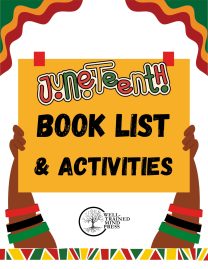
Juneteenth Booklist & Activities
0 out of 5$0.00 Add to cart -
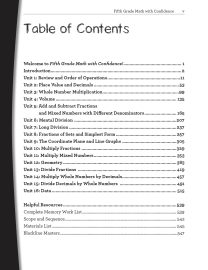
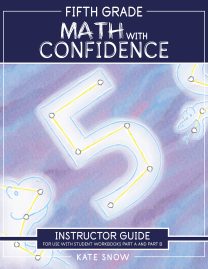
Fifth Grade Math with Confidence Instructor Guide
0 out of 5Starting at:$36.95Original price was: $36.95.$27.71Current price is: $27.71. Select options -
Sale!

Hansel & Gretel and Other Stories: Downloadable MP3
0 out of 5$12.95Original price was: $12.95.$9.71Current price is: $9.71. Add to cart -
Sale!
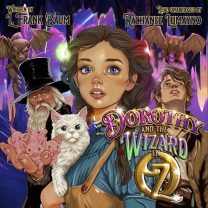
Dorothy and the Wizard in Oz: Downloadable MP3
0 out of 5$25.95Original price was: $25.95.$19.46Current price is: $19.46. Add to cart -
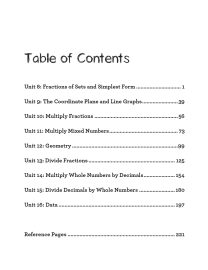 Sale!
Sale!
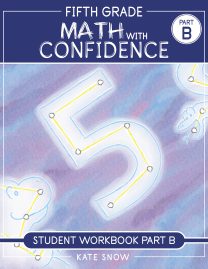
Fifth Grade Math with Confidence Student Workbook B
0 out of 5$16.46 – $21.56 Select options This product has multiple variants. The options may be chosen on the product page -
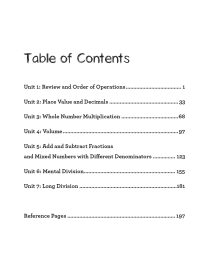 Sale!
Sale!
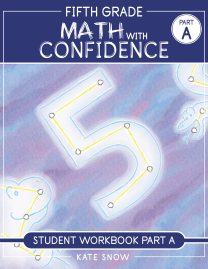
Fifth Grade Math with Confidence Student Workbook A
0 out of 5$16.46 – $21.56 Select options This product has multiple variants. The options may be chosen on the product page
ABOUT THE AUTHOR
Susan Wise Bauer
Join over 100,000 homeschooling families
For the latest offers, educational insights, products and more.
By joining you agree to our privacy policy.



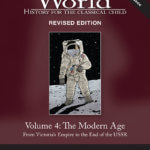
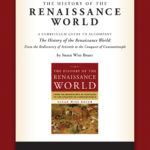

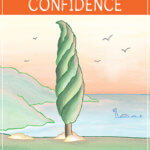



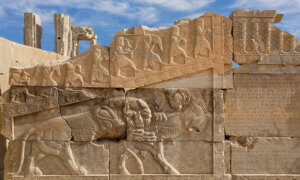


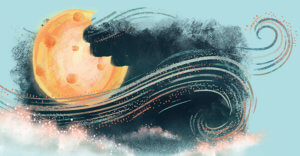

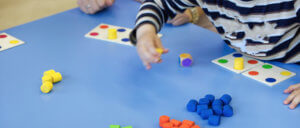


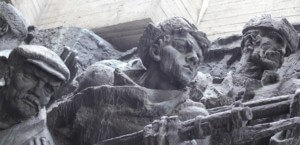
1 thought on “The Great Books: History as Literature Conference Handout”
In general, I thank you for your recommendations.
I do have to follow it up, however, by sharing my disappointment at certain recommendations without also giving warnings as to their content.
My best example is the Mitchell translation of The Epic of Gilgamesh. The graphic content in the novel felt like a slap in the face, considering that I was pre-reading it in preparation for our ninth grade ancient literature year. I can’t imagine how anyone could recommend such an explicit text without also giving parents a “heads-up” as to the kinds of relations that occur in the book.